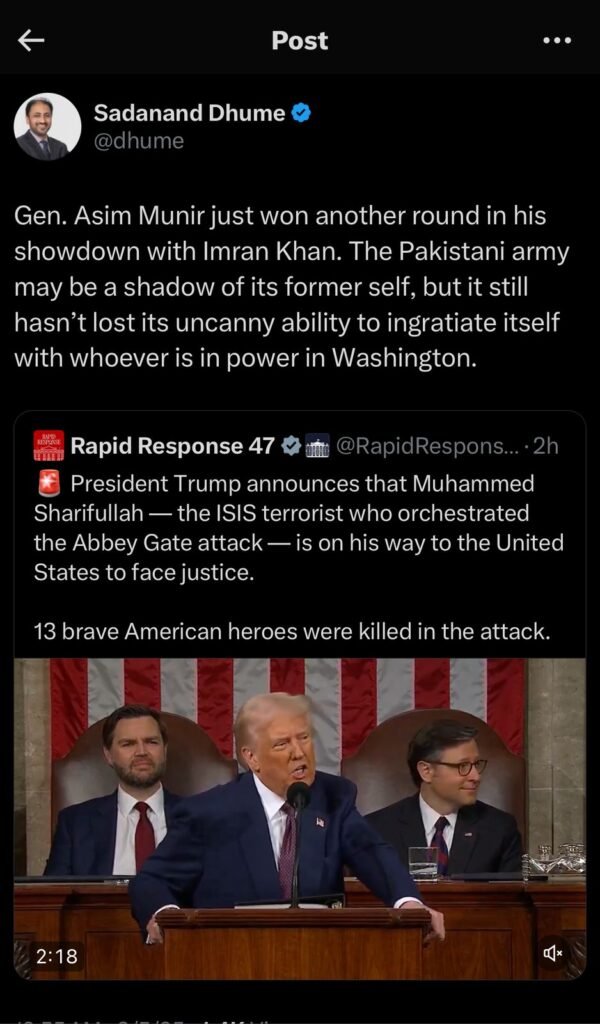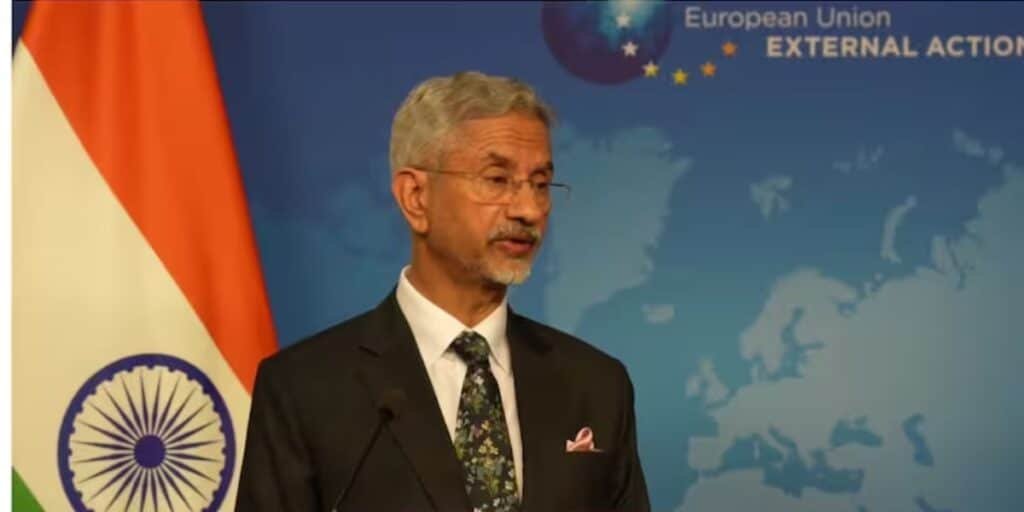Chief of Army Staff (COAS) General Asim Munir has once again demonstrated his strategic acumen by strengthening Pakistan’s global standing, particularly with the United States. This comes as the country played a key role in assisting Us forces in apprehending Muhammad Sharifullah, the ISIS mastermind behind the deadly 2021 Abbey Gate attack in Afghanistan. The development has been noted by Indian-American journalist Sadanand Dhume, who highlighted the shifting power dynamics in Pakistan.
Dhume, a columnist for The Wall Street Journal, tweeted about Gen Munir’s growing influence, suggesting that despite the Pakistani military’s challenges, it continues to maintain strong ties with Washington. In contrast, former Prime Minister Imran Khan finds himself increasingly isolated on the political front, both domestically and internationally.
US President Donald Trump announced the arrest of Sharifullah during his address to Congress. He is now being transported to the US to face justice. Trump’s remarks also underscored Pakistan’s cooperation in the counter-terrorism effort, a move seen as bolstering the country’s image under Gen Munir’s leadership.
The Pakistani military’s role in this high-profile arrest reflects Gen Munir’s efforts to reposition the army as a stabilising force in global security matters. His leadership has helped Pakistan maintain crucial diplomatic and security ties with the US at a time when the country faces economic and political uncertainty.

Meanwhile, Imran Khan remains on the sidelines, dealing with legal challenges and diminishing political influence. His past confrontations with the military and strained relations with Western powers have only added to his isolation. The contrast between Gen Munir’s growing diplomatic stature and Khan’s political struggles is becoming increasingly evident.
With the arrest of Sharifullah, Pakistan has once again proven its relevance in global counter-terrorism efforts. As Dhume’s tweet suggests, that Pakistani military has not lost its ability to align itself with Washington when necessary. This latest move under Gen Munir’s leadership reaffirms the army’s continued influence in shaping Pakistan’s foreign relations.
Sadanand Dhume writes about South Asian political economy, foreign policy, business, and society, with a focus on India and Pakistan. He is also a South Asia columnist for the Wall Street Journal. He has worked as a foreign correspondent for the Far Eastern Economic Review in India and Indonesia and was a Bernard Schwartz Fellow at the Asia Society in Washington, D.C. His political travelogue about the rise of radical Islam in Indonesia, My Friend the Fanatic: Travels with a Radical Islamist, has been published in four countries. tis is his profile






